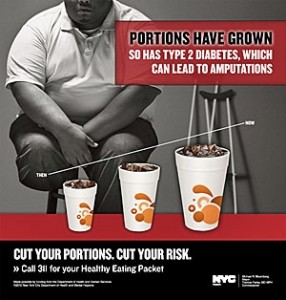Marketing: Being just the opposite of want businesses want?
This blog refers to Xuan Zhou’s blog “I s advertising always a good behavior?” (https://blogs.ubc.ca/sophiezhou/), which argues about Junk Food’s ads not being responsible to tell its true information to customers. It reminds me of many other businesses which intend to make profits by making deceptive ads.
 Early this year, Coca-cola introduced a new product line “diet soda” and produced ads touting how easy it is to work off calories by drinking a cup of Coke. As marketers’ point of view, they expect this health campaign help build a good image for the company and get more health-conscious consumers. However, as many researchers indicate that sugar-sweeten beverage contains nothing nutritionally beneficial but often leads to many diseases such as obesity, the company’s health campaign is doomed to failure.
Early this year, Coca-cola introduced a new product line “diet soda” and produced ads touting how easy it is to work off calories by drinking a cup of Coke. As marketers’ point of view, they expect this health campaign help build a good image for the company and get more health-conscious consumers. However, as many researchers indicate that sugar-sweeten beverage contains nothing nutritionally beneficial but often leads to many diseases such as obesity, the company’s health campaign is doomed to failure.
How comes Coca-cola’s marketing be just the opposite as the business want?
While the starting point of Coca-cola is good since consumers are now more health-conscious than ever, the fact that the company cheats its customers by providing untrue information of its products makes it failed.
I agree with Xuan Zhou that for businesses, “being social responsible for the whole society is much more critical than making money.” Negative Controversy brings by deceptive ads is the one thing that businesses would never want. Not only would they risking losing loyal customers, but the diminished trust in business lead political leaders to set policies that undermine businesses’ operation.
It’s good to see that business are more aware of creating social value as an important way to succeed, but deceptive marketing is never a smart way to achieve it.
Sources:
Soft drink makers accused of using “Big Tobacco Playbook” (Aug 19, 2013) Retrieved Nov. 16 2013 from CBCNEWS: http://www.cbc.ca/news/health/soft-drink-makers-accused-of-using-big-tobacco-playbook-1.1362598

